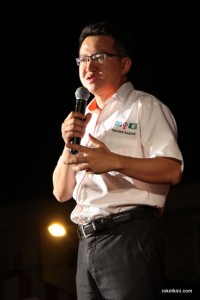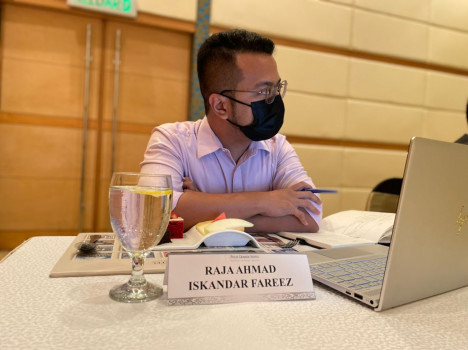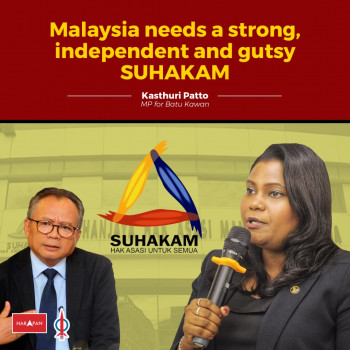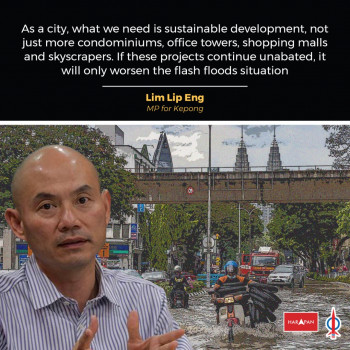First, is Umno’s electoral system superior to DAP’s?
It is comical to see Utusan and TV3’s recent tirade against DAP secretary-general Lim Guan Eng for not winning the top spot in the re-election of its central executive committee and why I, being the candidate who received the highest number of votes, should be handed the secretary-general’s post immediately.
Underlying this is the notion that DAP’s party electoral system is faulty and undemocratic. Systems that are dissimilar to Umno’s are not necessarily faulty. Each type of electoral system comes with its own reasoning which requires deeper analysis.
Umno has a system that ostensibly allows for election of key office bearers. On paper it looks democratic. But only on two occasions have Umno presidents had to face a challenger: in 1978 Tun Hussein Onn had to fend off Sulaiman Palestine and in 1987 Tun Dr Mahathir Mohamad survived a challenge by Tengku Razaleigh Hamzah by a mere 43 votes.
Malaysian history would have been very different had Tengku Razaleigh won the Umno election. Or had Umno made it much easier to contest against the president, some of Umno best leaders would have taken turns to serve as Malaysia’s prime ministers. Tun Musa Hitam, Tengku Razaleigh and Datuk Seri Anwar Ibrahim are the prime ministers we never had, in part because Umno’s electoral system is biased towards incumbent presidents.
In the end, Umno presidents could only be removed through party coups. Indeed, Dr Mahathir had a hand in undermining the premierships of Tunku Abdul Rahman, Tun Hussein Onn and Tun Abdullah Badawi. Tun Razak died prematurely in office. Next we wait to see Dr Mahathir’s knife being pointed at Datuk Seri Najib Razak, especially if Mukhriz Mahathir fails to win his vice-president’s post.
Since the formation of DAP in 1966, all top leaders have to go through election once every three years. Delegates elect 20 members to form the central committee, which in turn elects among its members the office bearers. The 20 elected leaders further appoint another 10 persons to join the central committee.
In all the years that Lim Kit Siang was secretary-general, he never topped the list of votes. It was only in 2008 and 2012, when he was no longer secretary-general, that he received the most number of votes.
Secretary-generals have to run the party and make decisions. Not every decision pleases every single member. Which is why there is a saying among DAP leaders that whoever appointed to chair the Disciplinary Committee – the unit that is supposed to crack the whip, including proposing to sack members – would expect a decline in votes.
The DAP is organised along the idea of collective leadership. The secretary-general does not acquire a presidential aura, but is just the “first among equals” of leaders elected at the same election. The chairman chairs meetings and watches over the secretary-general and other office bearers who execute the decisions of the central committee. The chairman is not the president.
Second, has Umno ever elected a non-Malay to its supreme council?
Of course this is just a rhetorical question, a reminder that non-Malays are barred from joining Umno.
Umno and its surrogates have accused the DAP of not electing Malay members into the CEC, except for Zairil Khir Johari. In their mind, it’s always the skin colour.
No political party operates from a vacuum. The DAP had to contend with an image problem among the Malays, in part thanks to years of poisoning by Umno and Utusan Malaysia, making it difficult for mass participation of Malays in DAP. Nonetheless, DAP members can still take pride in a party that strives to be “the most Malaysian party” in terms of leadership and candidatures.
Only Parti Keadilan Rakyat and DAP can claim to have all the key ethnic and geographical groups represented in the party structure and as well as among elected reps at the national level.
Diversity is DAP’s strength. DAP has more Indian elected representatives than the Indian-only party, MIC. In this election, DAP won in some seats that have more than 50% ethnic Malay voters as well as seeing three ethnic Malay reps being elected, namely Dato’ Ariff Sabri, Tengku Zulpuri Shah Raja Puji and Zairil Khir Johari.
Geographically, DAP is the first party to have branches in all states of Malaysia. Last May’s general election also saw a Kadazan, Dr Edwin Bosi, being elected as state assemblyman in Sabah.
Admittedly, making diversity its creed and practising it is not an easy task, especially when the likes of Utusan and TV3 kept fanning racial sentiments and insecurity. But diversity is in our “article of faith”.
Third, does Umno provide enough opportunities for young people to be in the party leadership?
I suspect there is something that Umno members are quietly amazed by DAP and felt let down by their own party and leaders: that the DAP has youth power.
40% of the 20 DAP elected CEC members were born after 1970. Chong Chieng Jen (MP for Bandar Kuching), Nga Kor Ming (Taiping), Tony Pua (Petaling Jaya Utara), Gobind Singh (Puchong), Loke Siew Fook (Seremban) and myself were born after 1970 while Teo Nie Ching (Kulai) and Zairil Khir Johari (Bukit Bendera) were born after 1980.
DAP has a strong pioneer generation cohort that are the moral pillars of the party; for instance, Karpal Singh and Lim Kit Siang evoke deep emotions. The middle-age generation leaders have at least 20 years of experience of electoral politics under their belt.
Lim Guan Eng, Chow Kon Yeow, Teresa Kok, Teng Chang Khim, Chong Eng and Ngeh Koo Ham as well as Dr Boo Cheng Hau have vast experience both in opposition and in state governments while Tan Kok Wai and M. Kula Segaran and Fong Kui Lun are the resilient veteran leaders.
Whereas people of my age in Umno are still competing at youth level (its leader Khairy Jamaluddin is a year my senior) and some friends in MCA Youth leadership already have children about to reach voting age!
Instead, DAP’s young are given the opportunities to learn on the job in the central committee’s executive positions, such as National Organising Secretary, National Publicity Secretary, National Political Education Director, Head of Legal Bureau and International Secretary.
By the next general election, there will be a strong and experienced third generation born after 1970, many of whom would have been elected for at least two terms in the federal parliament.
The young are able to rise in the ranks of the party and form a formidable cohort in part because the electoral system is relatively collegial.
These are the things about DAP that Umno and its surrogates fail to grasp.




